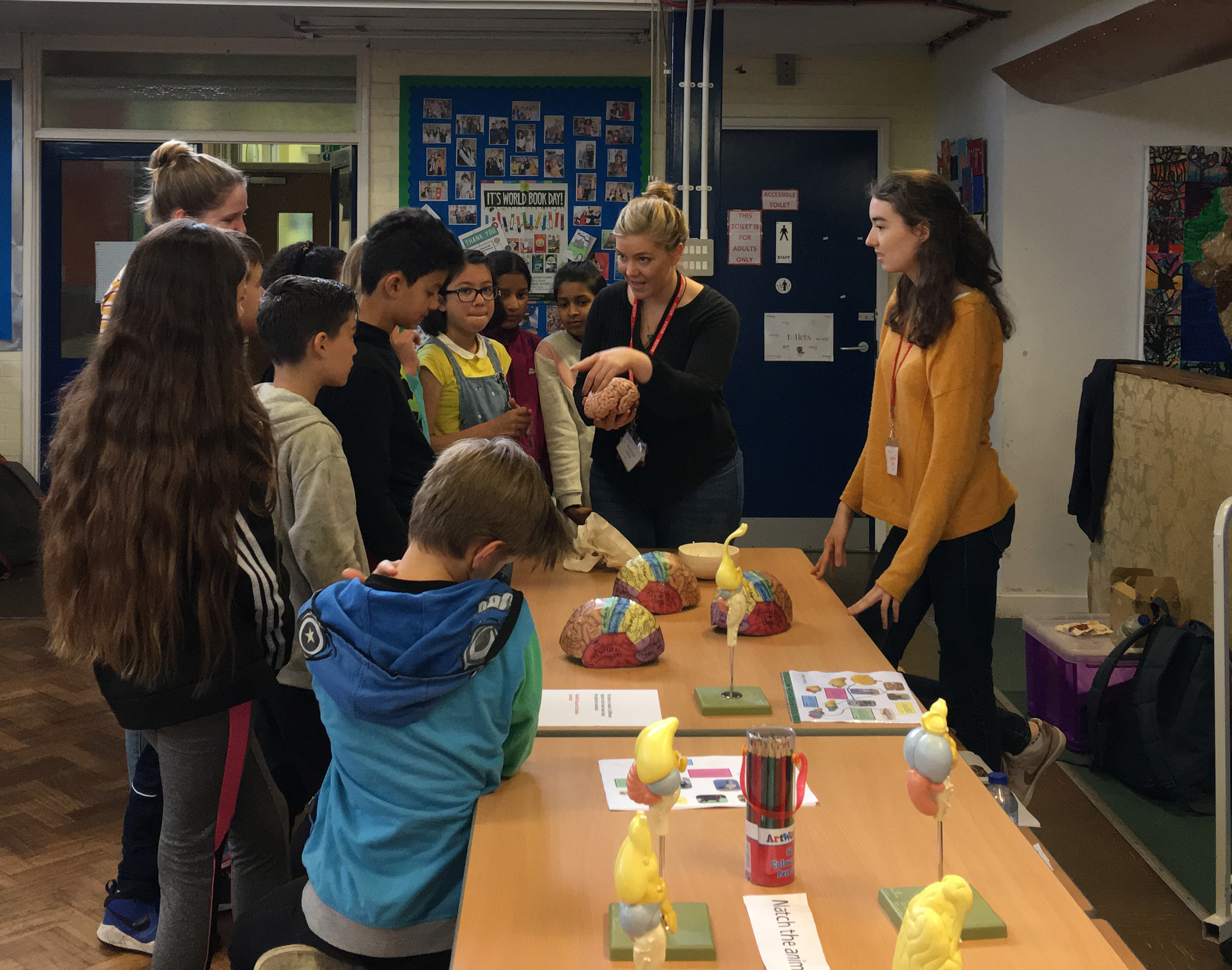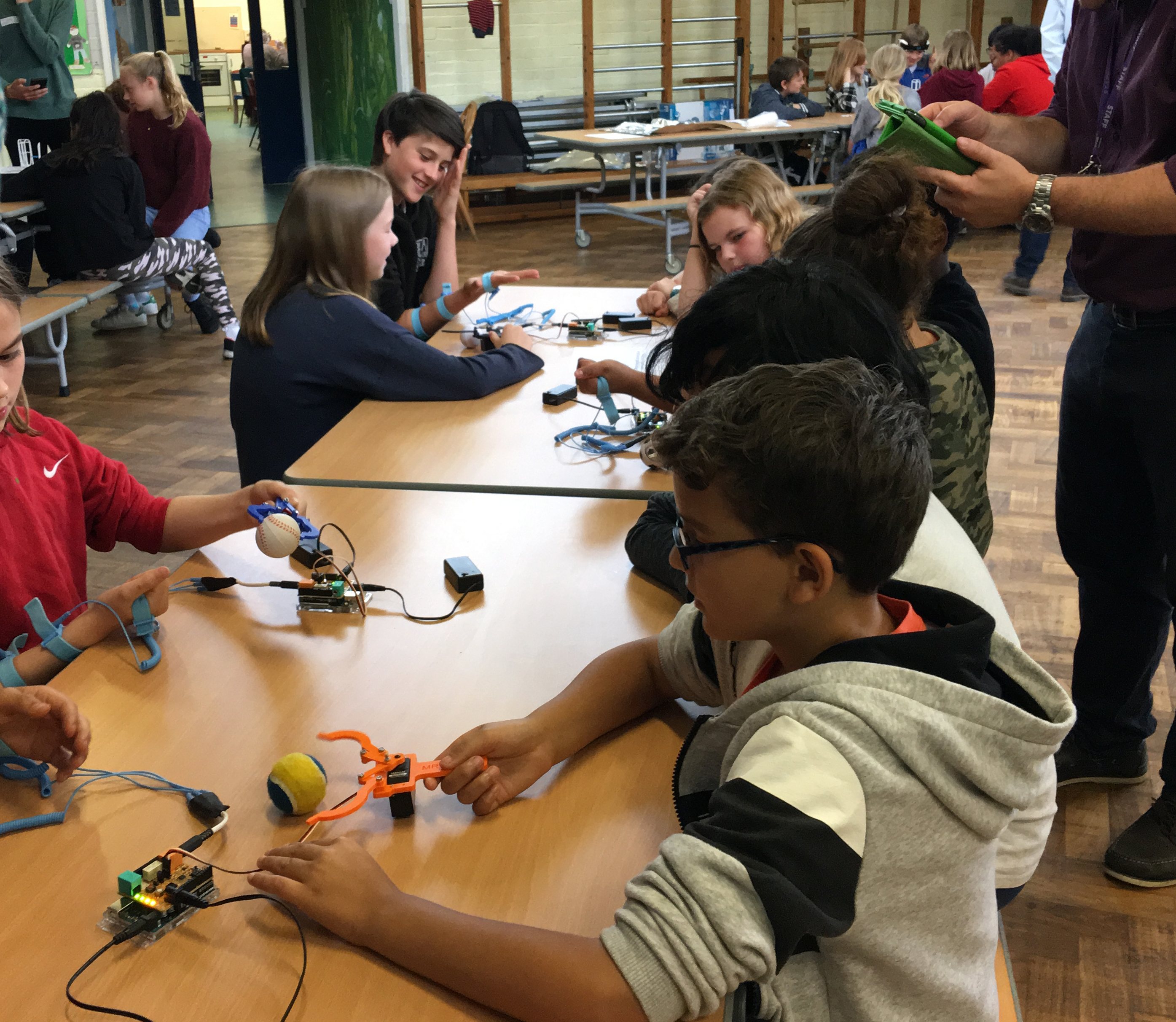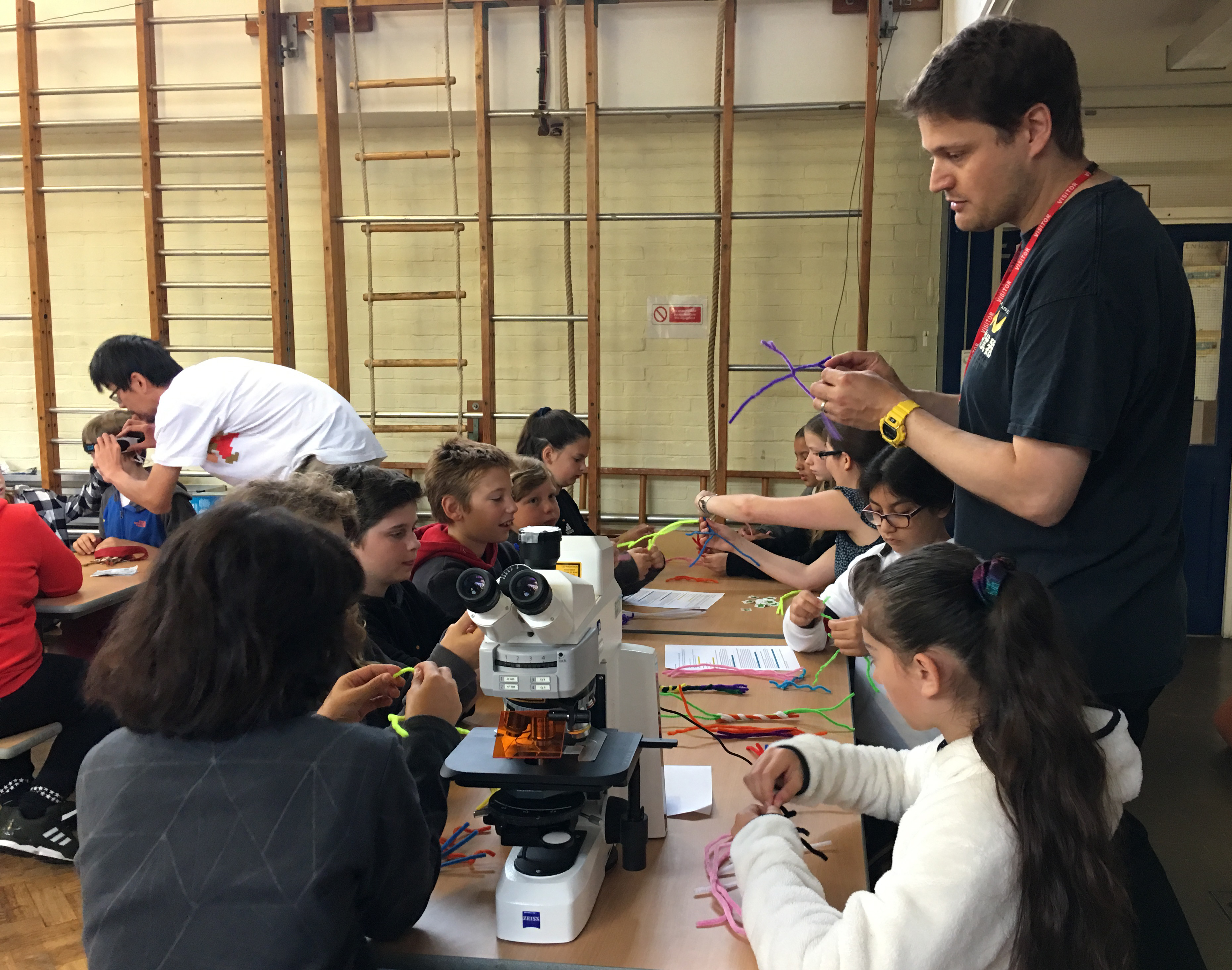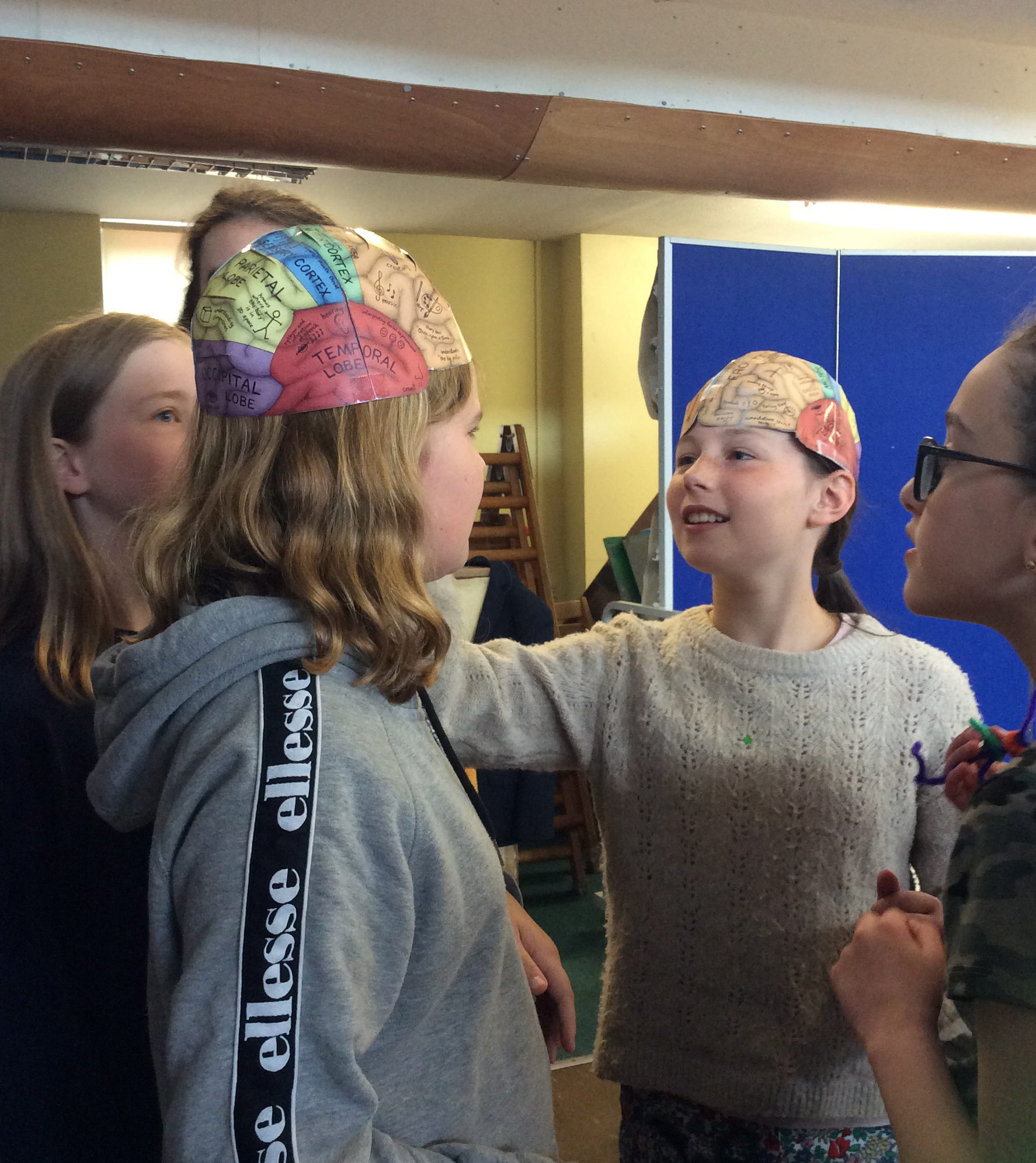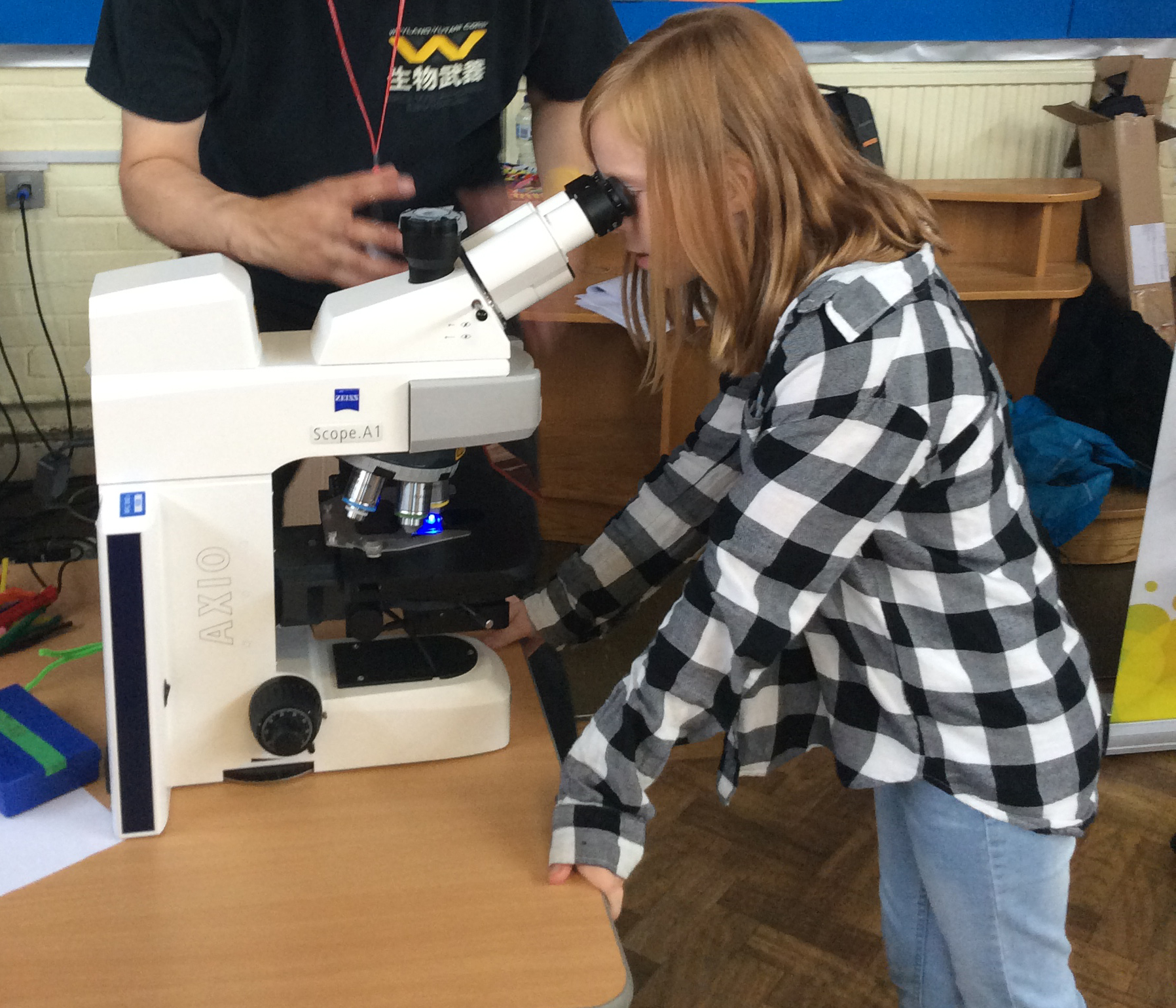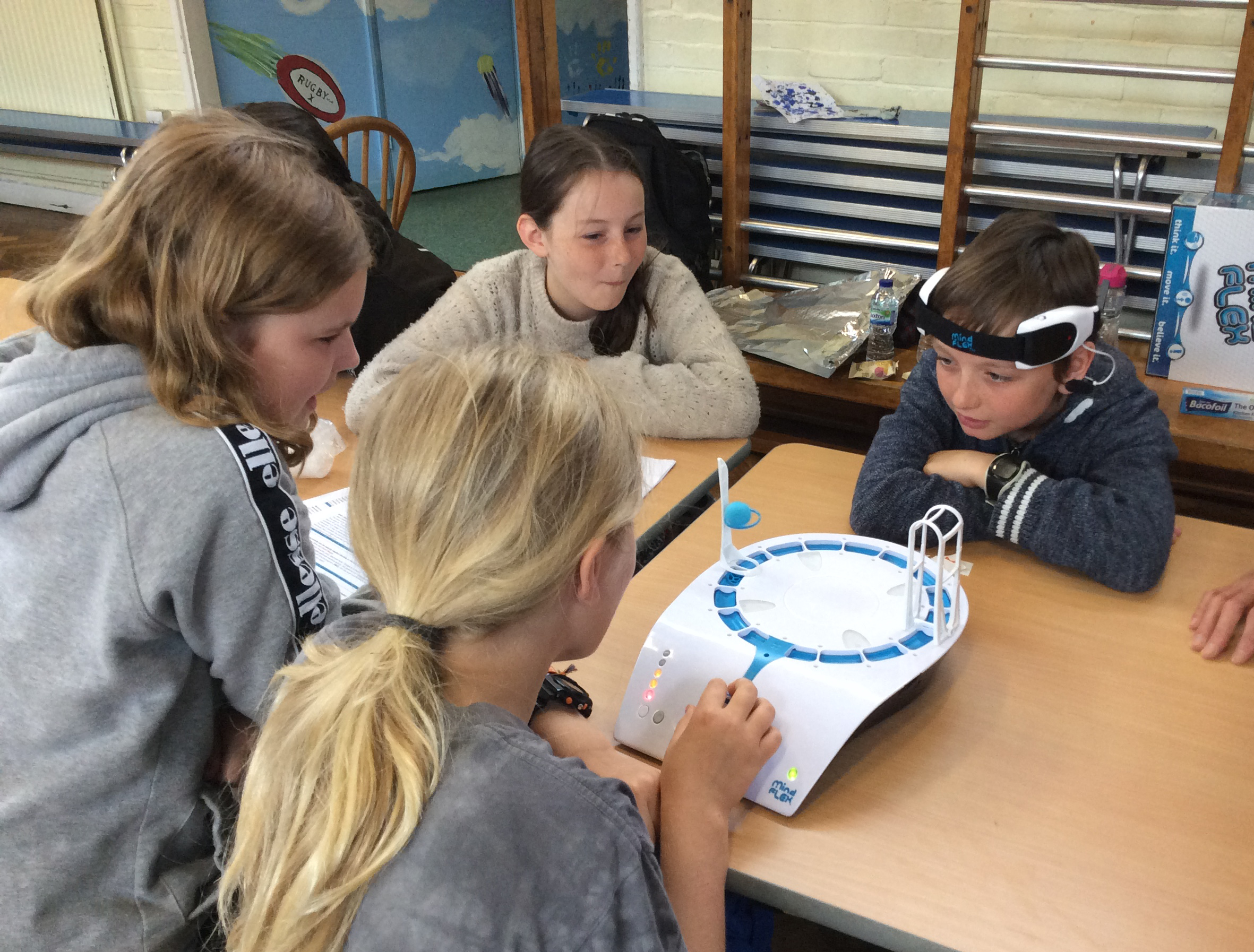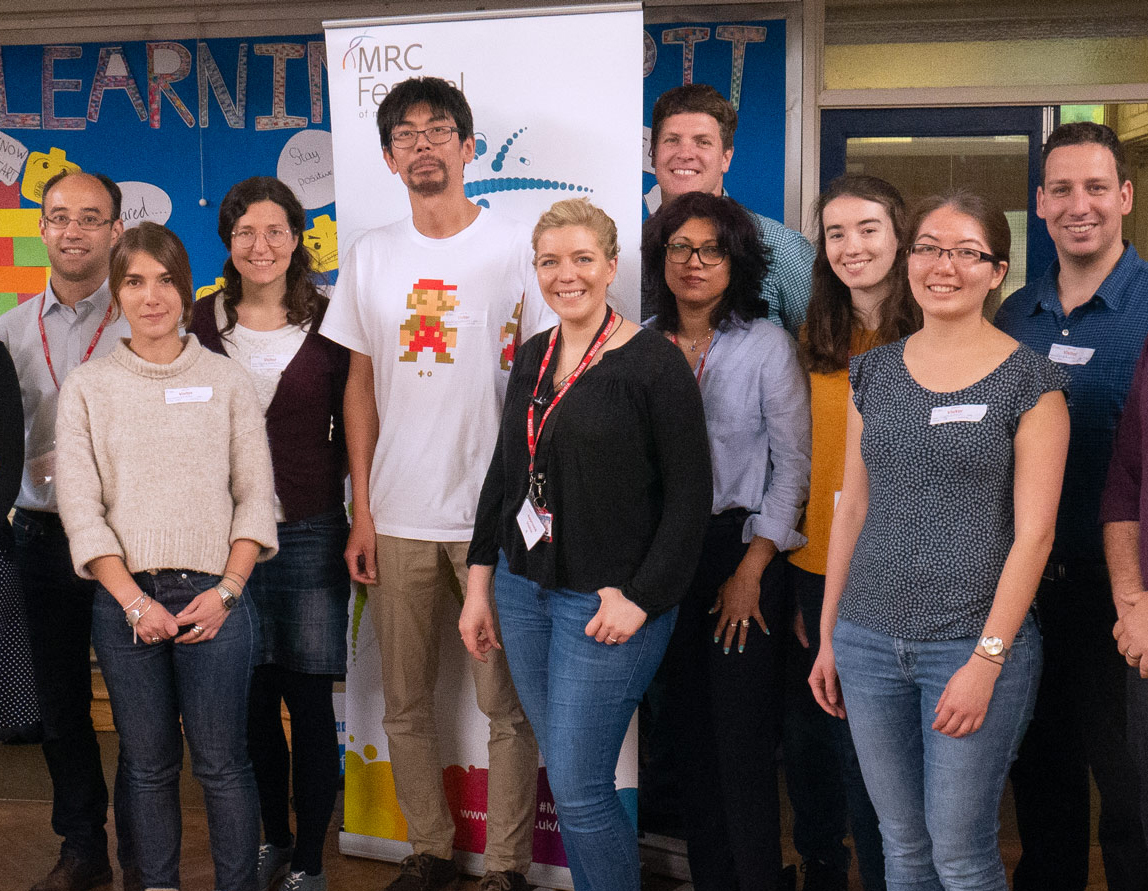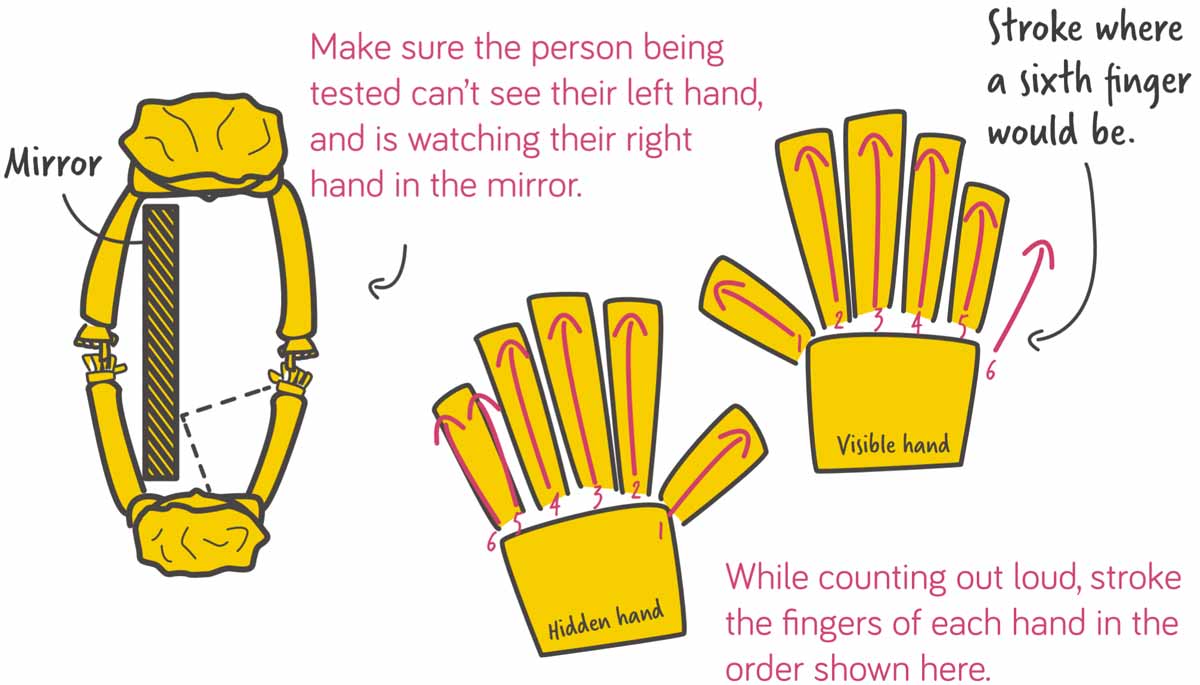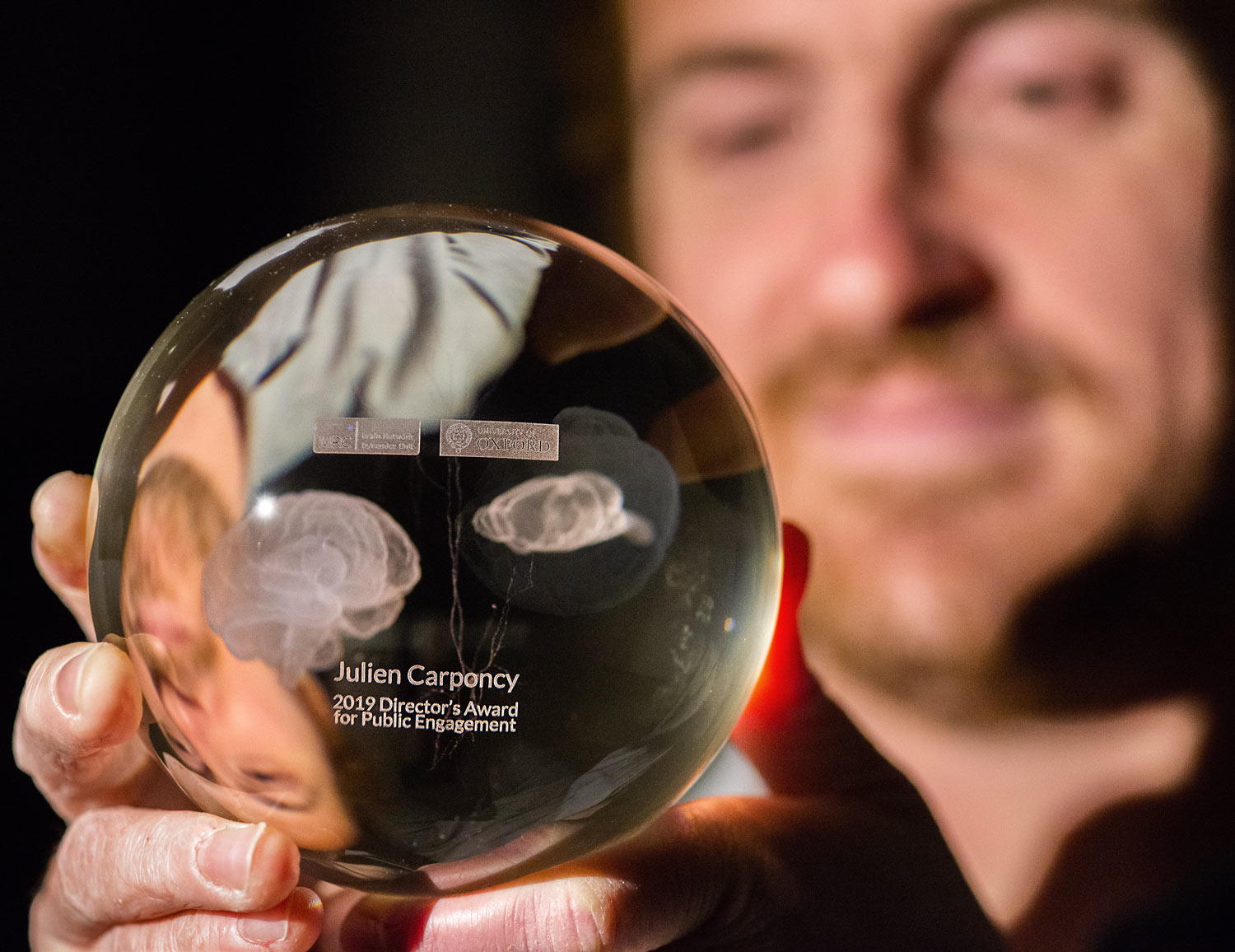
Congratulations to Unit postdoctoral researcher Dr Julien Carponcy on winning the Director’s Award for Public Engagement for 2019.
The Award recognises and celebrates the exemplary contributions of an individual or small collective to the Unit’s extensive Outreach programme. The Award is given annually (this being the fourth occasion), on the basis of nominations made by Unit members.
Julien received his Award from Unit Director Professor Peter Brown at a special ceremony held last week. Professor Brown commented “It gives us all great pleasure to recognise and reward Julien in this way. Julien has demonstrated great initiative and leadership in co-creating an important new project advancing the Unit’s work on patient and public engagement/involvement. In doing so, he has included several Unit Groups, made the most of the Unit’s local stakeholder network for PPI, and forged an exciting new partnership with the Pitt Rivers Museum. Julien has provided a fantastic example for others to follow.”
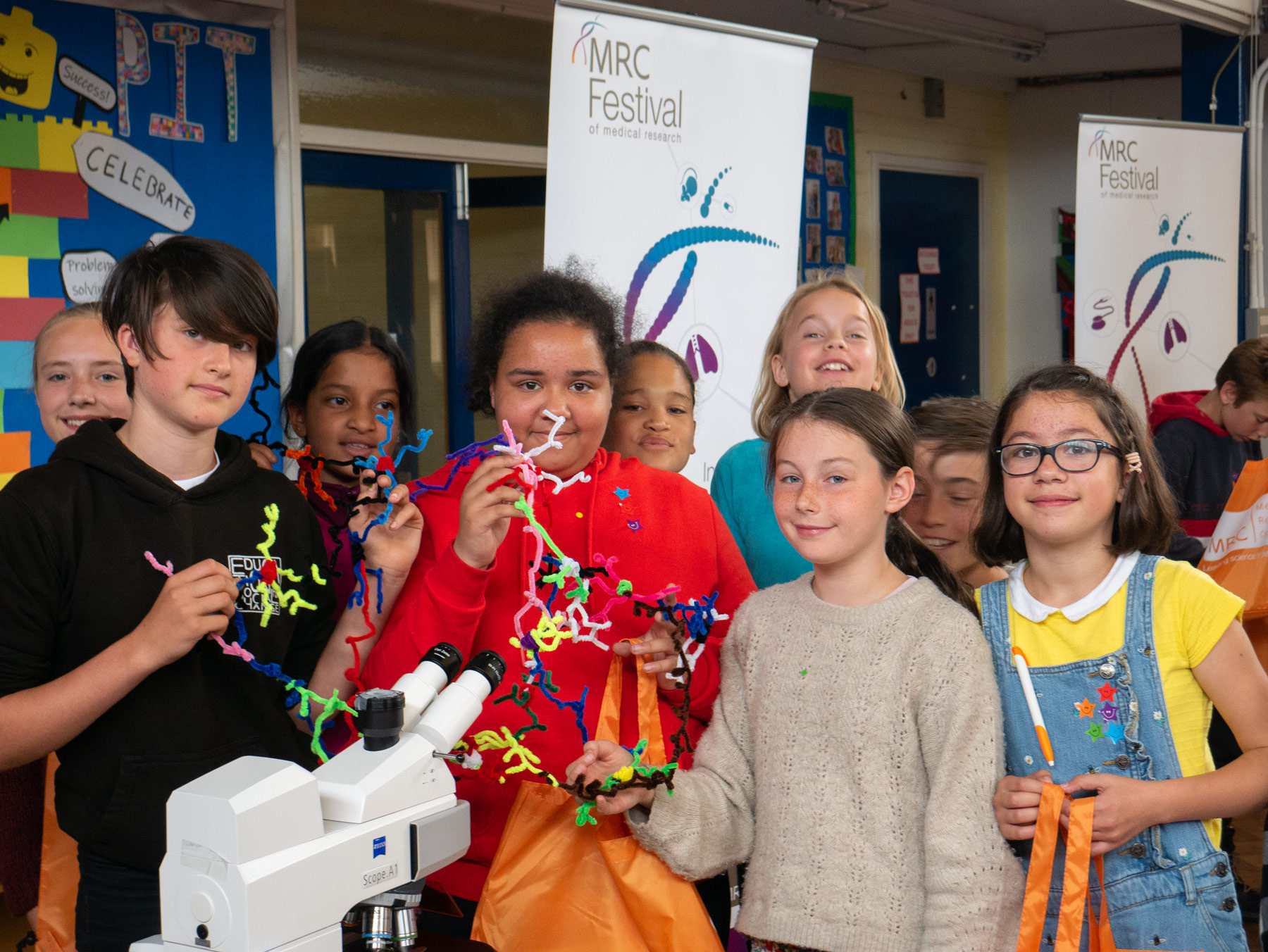
On 19th June, a team of Unit members went to St Ebbe's C. of E. (Aided) Primary School in central Oxford, where they visited Year 6 pupils and their teachers to help them learn more about science, researchers, and how the brain works to control memory and movement.
Pupils were first given a brief introduction to the work of the Medical Research Council and the MRC Brain Network Dynamics Unit. Pupils, teachers and Unit members then engaged in a range of interactive dicussions and hands-on activities that included looking at nerve cells under a microscope, reporting on observations by making model cells, measuring electrical activity from muscles to control a robotic claw, comparing the brains of different vertebrates, discovering different types of memories, and using a game version of a brain-machine interface.
School teacher Ms Payne commented: “We had the most incredible morning. The children learnt all sorts of things about the brain, and were able to use equipment that would never usually be available to primary school children. Seeing the children feel inspired to study more about the brain and science in general was a real highlight.”
The Unit’s visit to the school was one of many public engagement events led by the Medical Research Council and held across the country from 13th-23rd June 2019 as part of the MRC Festival of Medical Research.
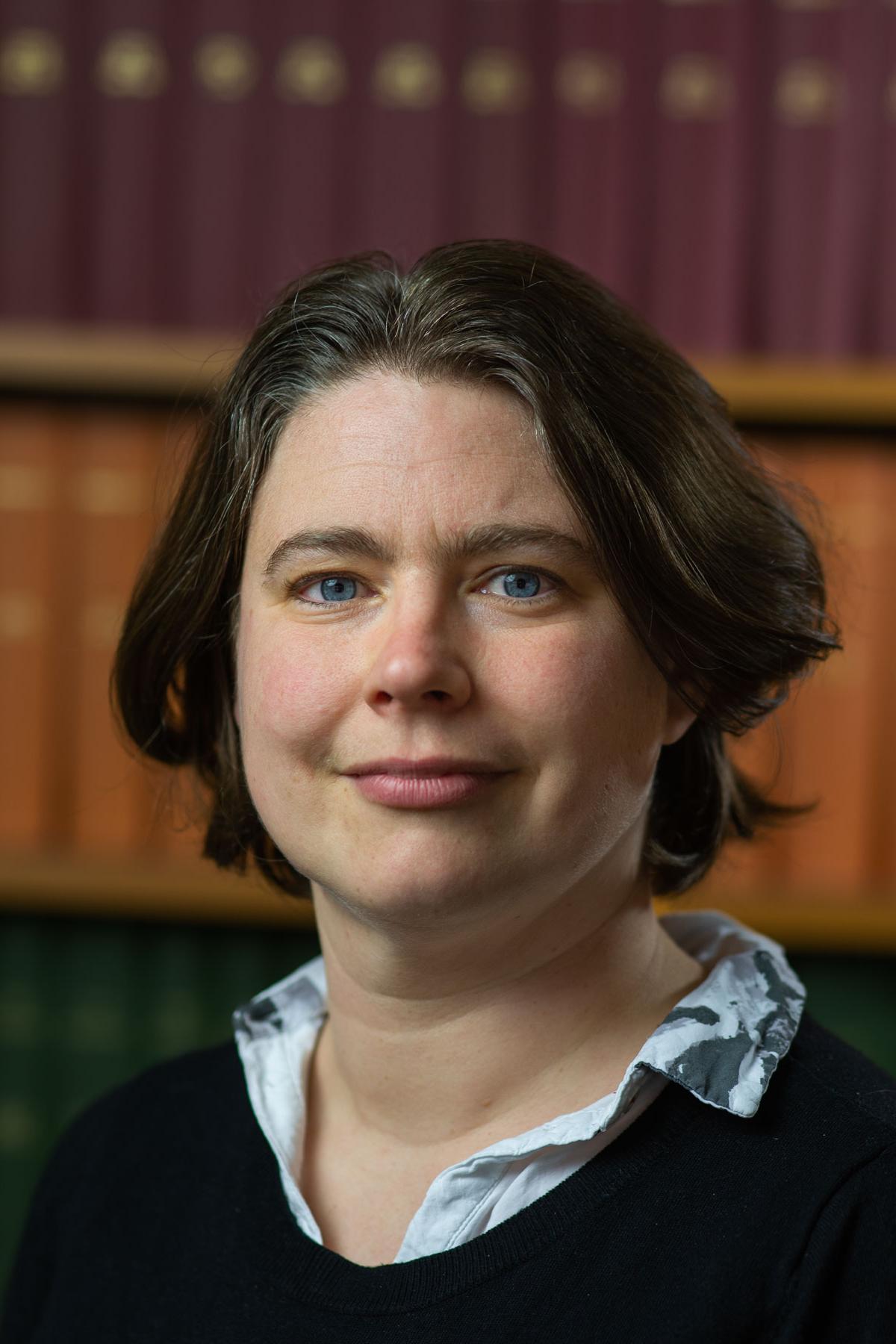
Many congratulations to Unit Group Leader Professor Charlie Stagg on being awarded ‘Mentor of the Year’ by the National Institutes of Health Oxford-Cambridge (NIHOxCam) Scholars Program.
The NIHOxCam program is a 4-year D.Phil./Ph.D. scheme, jointly undertaken between the NIH and Oxford or Cambridge universities. Students have a mentor at the NIH as well as in their UK institution. The Mentor of the Year Award is made on the basis of nominations from students across the program. Charlie was presented with the Award by Professor Sarah Rowland-Jones, Director of the NIH-OxCam program in Oxford, at its annual meeting held on 26th June.
Charlie commented “I am delighted to have hosted two excellent students in my Group through this scheme, with whom we have developed exciting collaborations with the NIH. I am very grateful that the students considered me worthy of the award!”
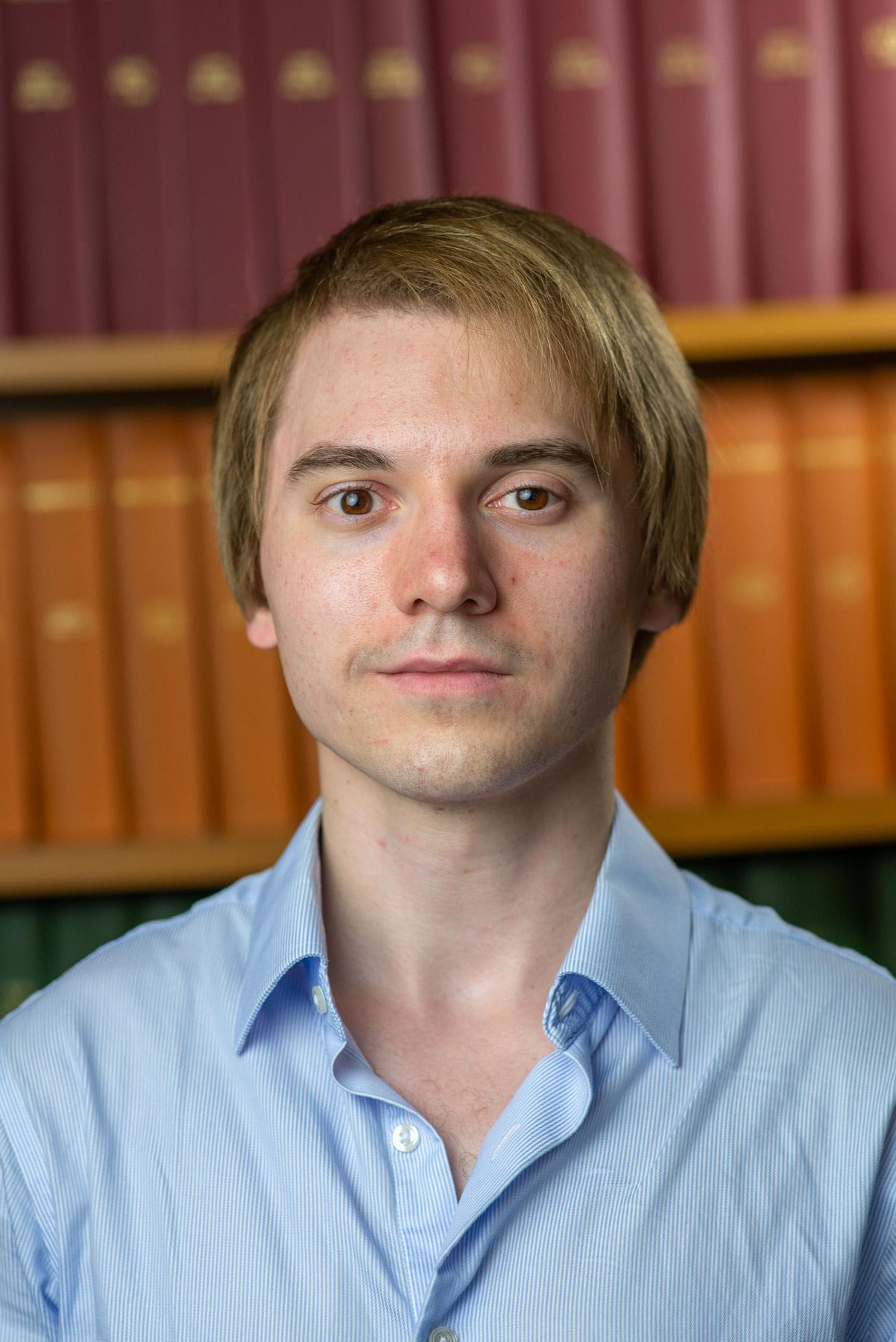
We are pleased to welcome Kei Landin to the Unit as a visiting student. Kei joins the Denison Group and Stagg Group, and will be working to develop novel applications of virtual reality and augmented reality technology in clinical medicine and neuroscience.
Kei is currently pursuing a M.Sci. (hons) degree in Neuroscience at King’s College London. Prior to joining the Unit, Kei has worked as a research student at multiple institutions, including the University of Cambridge, the Karolinska Institute, the Swedish Museum of Natural History, the University of Gothenburg, and the Royal Swedish Academy of Sciences.
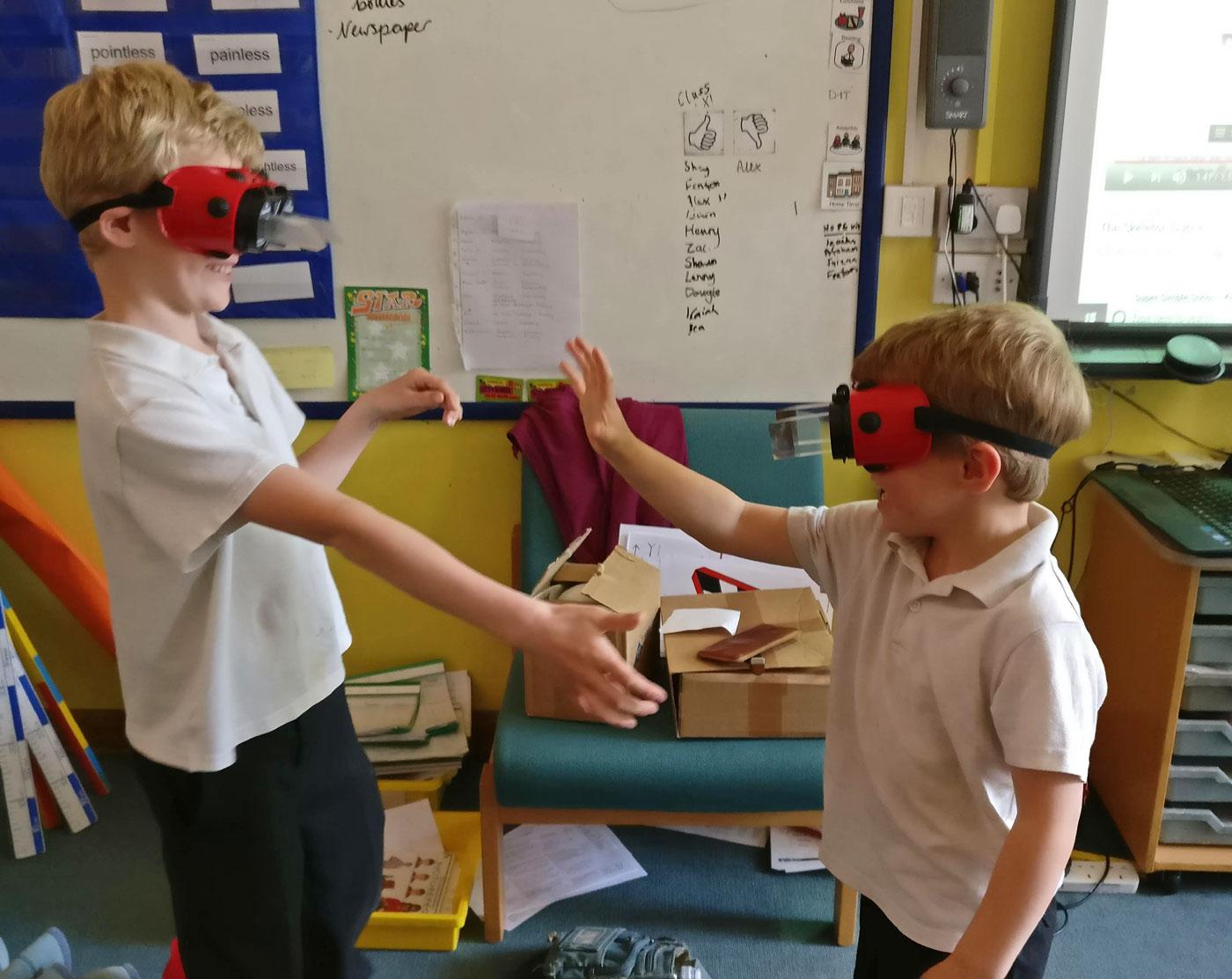
Unit Research Support Manager Ben Micklem recently made a return visit to St. Nicholas' Primary School to run two after-school Science Club sessions.
The first session covered sight and optical illusions. After introducing the eye and its connection to the brain, Ben used the famous selective attention test video, where even an unusual sight can be overlooked by people concentrating on a counting task, to illustrate that the brain has a bigger part in 'seeing' than they expected.
To showcase the brain's ability to adapt to changing visual feedback, the children tried on 'reversing goggles', part of the Unit's Public Engagement 'Toolbox'. These goggles flip the image entering the eye, either vertically or horizontally. At first, the children found it challenging to achieve tasks like shaking hands with another goggle-wearer, but after time and practice, their brains adapted and the tasks became much easier for them.
The 7- to 9-year-olds were also guided to find their own blind-spots, and discovered how their brains could fill-in a gap in a line when the gap aligns with their blind-spot. The children engaged in discussions about why their brains were being fooled by the optical illusions on the worksheet (PDF available for download). They were introduced to the Ames Room illusion by a Royal Institution video, and they were all given printed templates to make their own.
The second session dealt with illusions to the sense of touch, and introduced proprioception. Some of the activites were taken from the Royal Institution's 'Baffling Body Illusions' workshop, including the use of a stuffed glove in front of the child as a fake hand, while their real hand stayed behind a wall. When both the fake hand and real hand were touched, there was the illusion that the fake hand was feeling the touch. Another popular demonstration involved the illusion of a '6th finger', when a mirror is used to give the child a view of two hands (actually one of their hands, and a mirror image of it), and the fingers on the hidden hand are counted in time with the visible hand.

We are pleased to welcome Cristina Maria Velasquez-Cobos to the Dupret Group for a period of advanced research as part of her BBSRC Interdisciplinary Bioscience Doctoral Training Programme at the University of Oxford.
During Cristina’s time in the Unit, she will work closely with Dr Laura Lefevre and Dr Vitor Lopes-dos-Santos to learn about hippocampal network activity during sleep and memory-guided behaviour.

We are pleased to welcome Joshua Keeling for his Final Honours School research project in the Dupret Group. Josh is currently studying for his B.A. in Biomedical Sciences at the University of Oxford.
During Josh’s time in the Unit, he will work closely with Dr Mohamady El-Gaby to learn about hippocampal representations of salient locations and the role of plastic synapses in generating such representations.
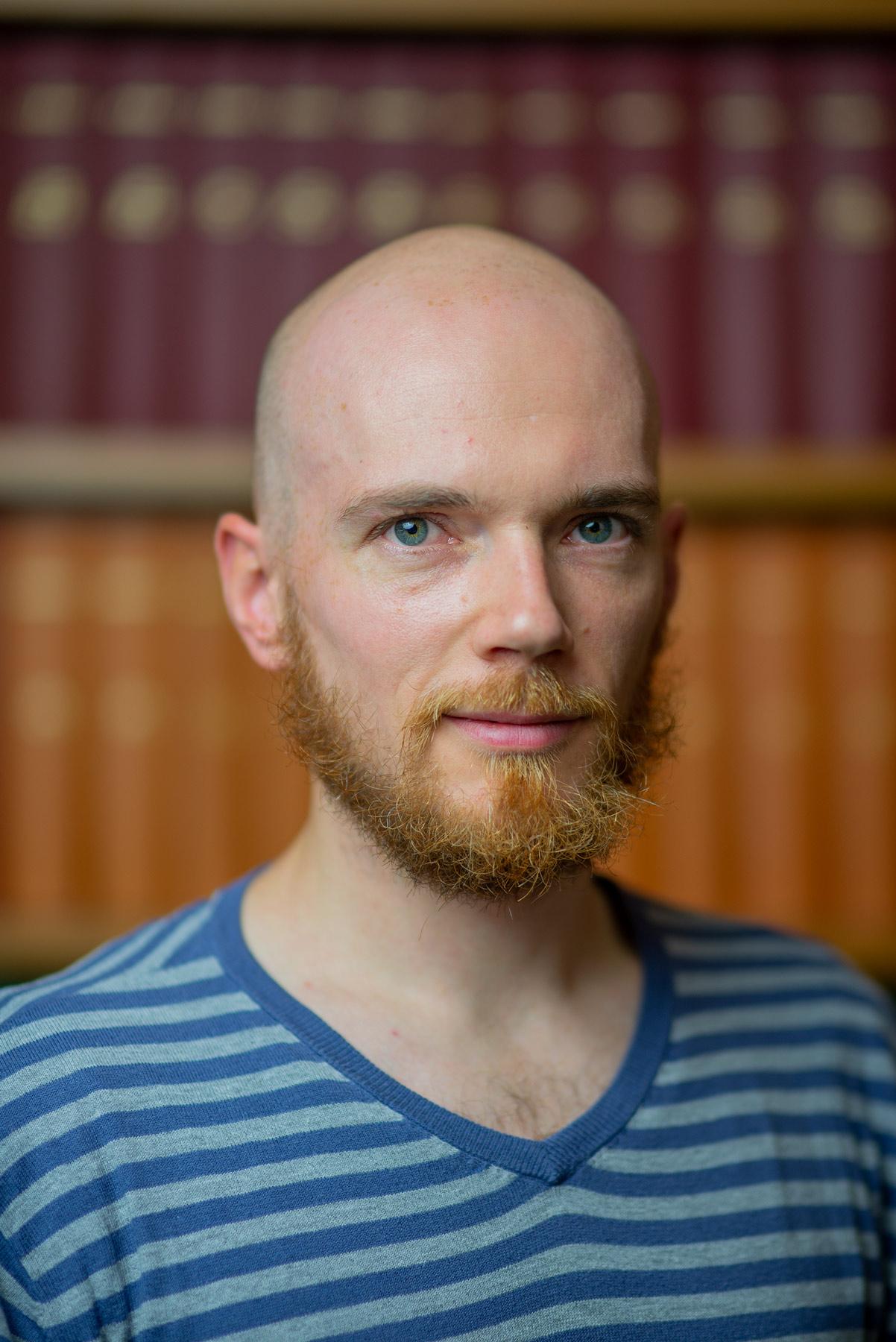
We are pleased to welcome Dr Germain Lefebvre to the Unit as a Postdoctoral Neuroscientist in the Bogacz Group.
Germain originally graduated from the University of Lille, France, with a Bachelor's degree in Psychology. He then went on to complete a Master’s degree in Economics & Psychology at Paris I and Paris V Universities, followed by a Ph.D. in Economics at Paris II University. Germain has wide interests in the research field of decision making, with most of his research falling between computational neuroscience and behavioural economics. During his doctoral and postdoctoral research, he investigated the learning mechanisms underlying the adoption of speculative behaviours together with those underlying the confirmation bias at the computational and neural level.
Here in the Unit, Germain’s research will be focused on the computational underpinnings of the confirmation bias, in extended learning environments.
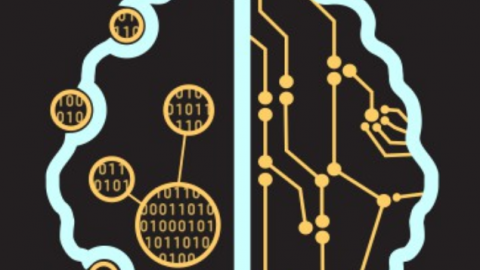
Unit Group Leader Rafal Bogacz was recently interviewed for a podcast at Brain Inspired, an online platform showcasing the convergence of neuroscience and artificial intelligence (A.I.).
During the interview, Rafal discusses with Dr Paul Middlebooks various ways in which the brain may approximate an efficient learning algorithm used by artificial neural networks. They also discuss the free-energy principle and its implications for understanding the brain.
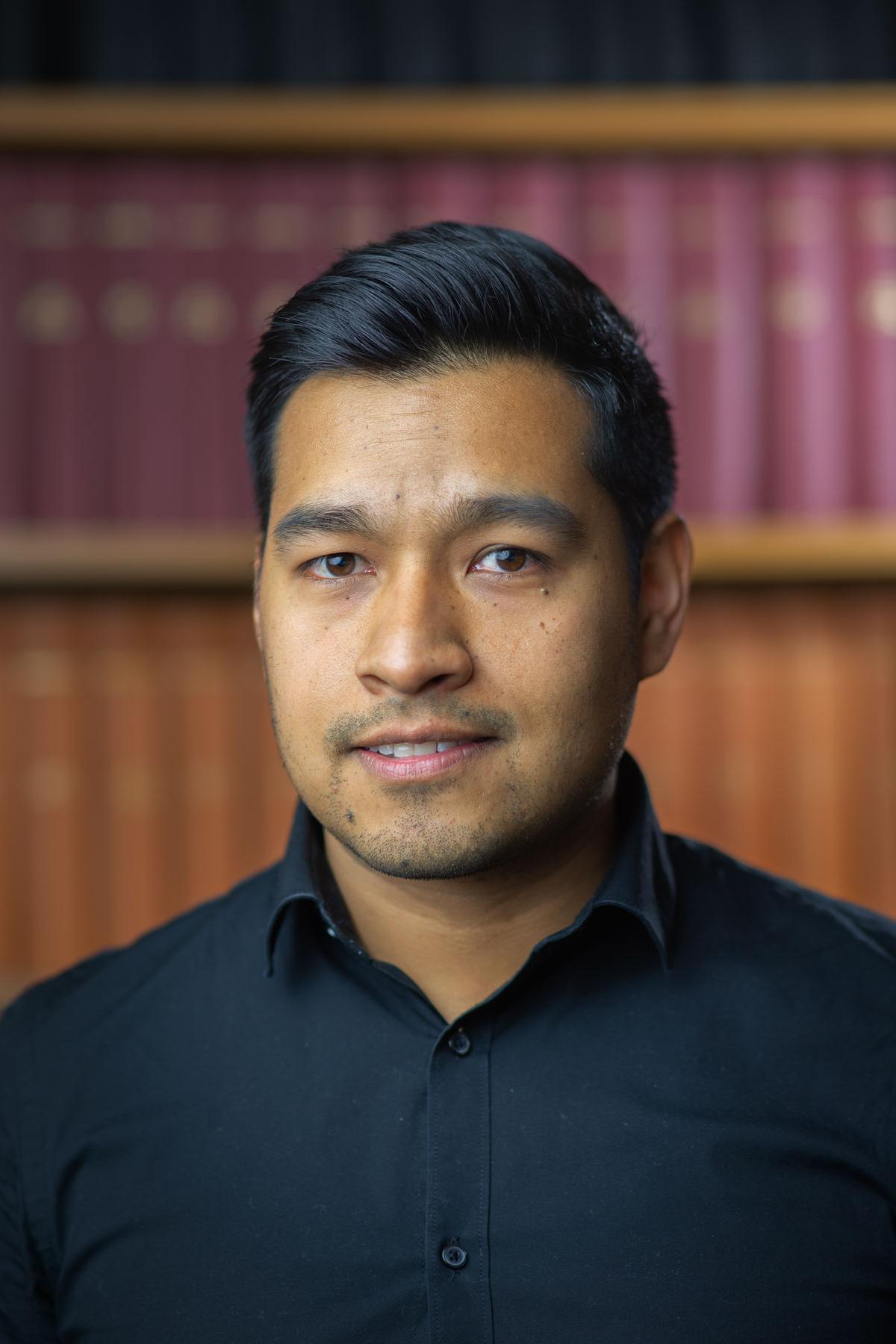
We are pleased to welcome Dr. Dan Piña Fuentes to Peter Brown’s Group as a visiting student for a period of advanced research.
During Dan’s time in the Unit, he will pursue studies related to his Ph.D. project that is focused on testing the efficacy of adaptive Deep Brain Stimulation (aDBS) in Parkinson’s disease. In addition, Dan will be exploring the possibility of applying aDBS to dystonia.
Dan obtained his medical degree in 2015 from the National Autonomous University of Mexico. He was then awarded a national grant (CONACyT) to pursue a doctoral degree at the University of Groningen, The Netherlands. Dan has been carrying out his Ph.D. project in the Department of Neurosurgery of the University Medical Centre Groningen.
